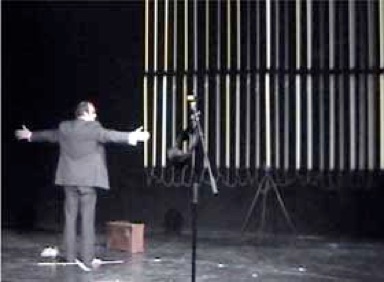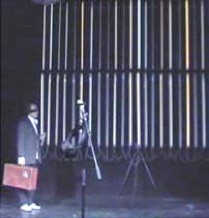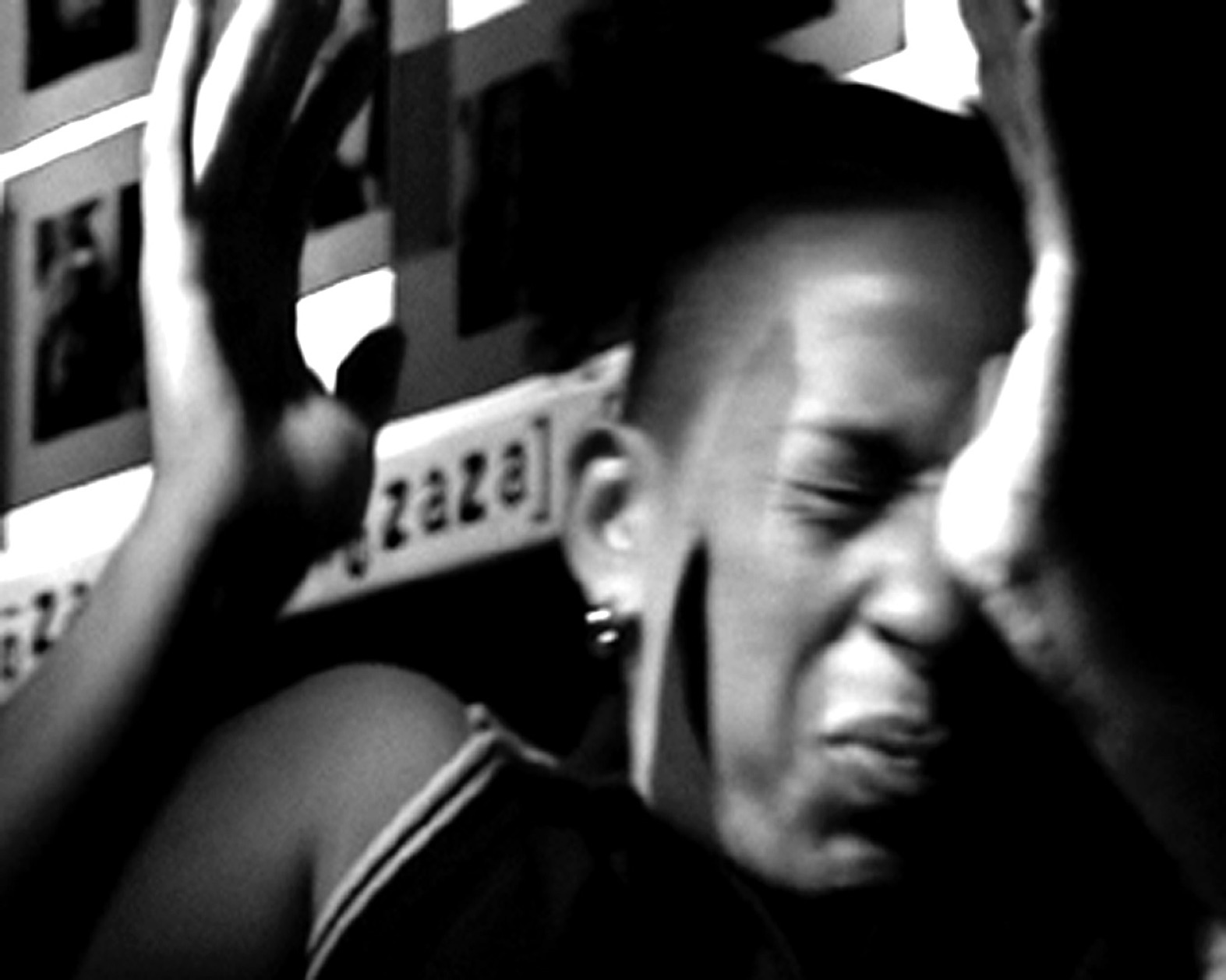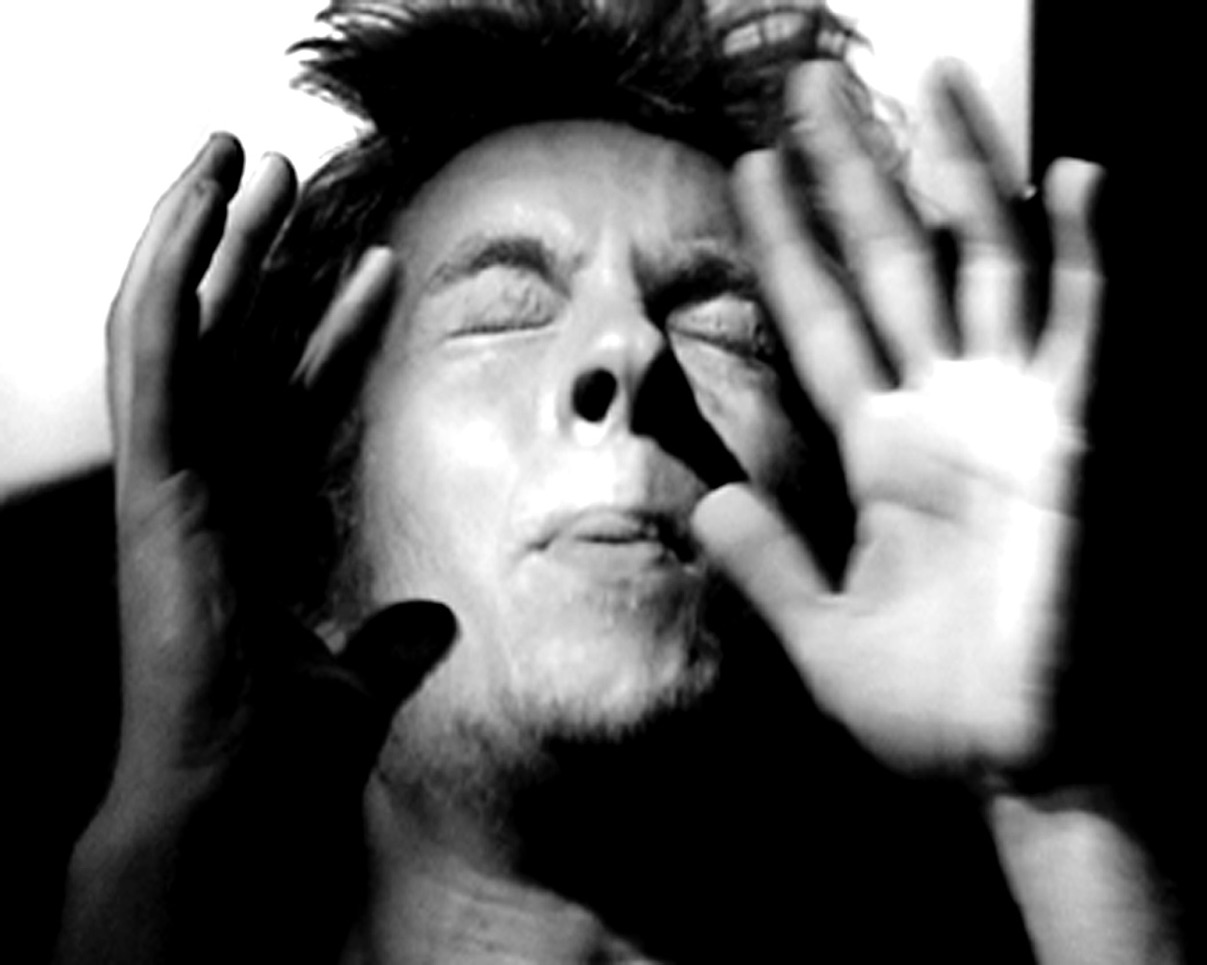Running though much of Rotozaza’s work has been a fascination with people coping with tasks, live and unrehearsed. BLOKE [1999] involved a performer [different every night, and often someone who had never before set foot on stage] who would agree to carry out any instruction given to him. That he knew NOTHING of what would be asked of him - except that he should try as hard as he could - was explained to the audience beforehand.

Henri Taïb, BLOKE premiere, Paris, 11.11 1999
The piece was born from a wish to see a friend perform [Henri Taïb, above at Theatre de l'Echangeur, Paris, 11 Nov 1999] who had never been on stage. "We wanted to create a situation for him where the responsibility to perform - the one thing he couldn't accept - was lifted from his shoulders, where we could say to him "it will work perfectly if you simply do what you're told". We loved the show for how it brought out a special and private kind of performative energy from the subject. He's right there before us, stumbling and hesitating through the proceedings, often faced with confusion, but the result is never demeaning - perhaps because the audience is aware they're literally discovering everything at the same time as the 'performer' they came to watch: he is not so alone, after all. BLOKE was first performed in Paris, 1999 - a collaboration with the musician and composer SAM BRITTON from ICARUS.

Phillippe Delaunay in BLOKE back at the Echangeur exactly 2 years after the first version with Henri. For this production Chris Singer and Ben Foot installed a wall of 80 fluorescent tubes which flickered in a kind of random synchronicity with the voice leading him along.


Since BLOKE a series of work has explored both the different ways of implementing this strategy and the many issues it raises. The shows vary greatly in tone, content, intention and outcome [some requiring experienced performers, others not... instructions hidden in some, audible or visible in others]. DOUBLETHINK [2004], perhaps the most complex to date, mixes prepared elements [rehearsed actors / fictional characters] to create an epic and chaotic picture of inner dialogue and self-deception. OOFF [2004] by contrast is fast, comic, chorreographed and almost cartoon-like. ROMCOM [2003] is a play written by Glen Neath for two unrehearsed actors who repeat the words they hear in their headphones.
More recently, Rotozaza have twisted this strategy to create two new outcomes. One is Five in the Morning, which plays on how and what the audience accepts as fact or 'reality' in a live setting. The other is a series of work initiated in 2007 which Rotozaza calls AUTOTEATRO: self-generating performance strategies where participants find themselves exchanging performer and audience roles.
Rotozaza has also produced several 'one-offs' - site specific interventions, installations, land art, happenings, mass choruses, photographic events, films - many of which have also involved unprepared performers.
Below is a list of the work made so far involving this kind of process.
[Please note: for words / images documenting the fifteen or so productions by ROTOZAZA between 1998 and 2002 [ranging from more conventional theatre relationships to large scale installations, 'happenings', photographic actions, etc] - please see this section]
Many of the earlier 'rehearsed' theatre pieces, such as [NEXT], [GRACE]and [HARPOON], (below) were in some way playing with this dynamic of task, freedom, responsibilty, someone telling another what to do. [click to go to individual sites]


